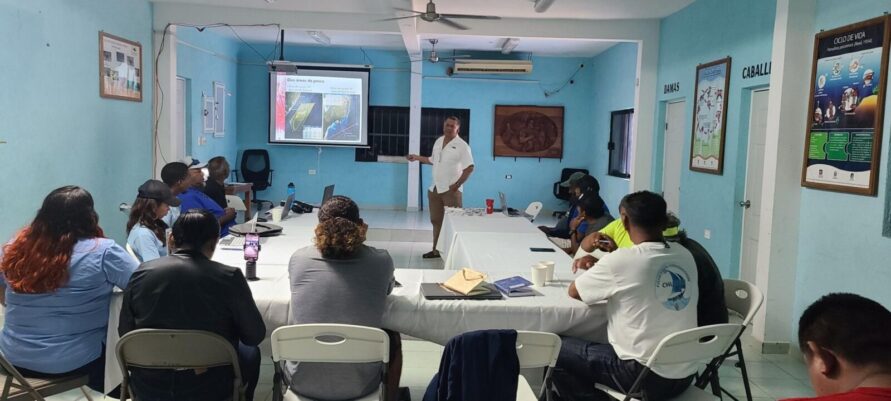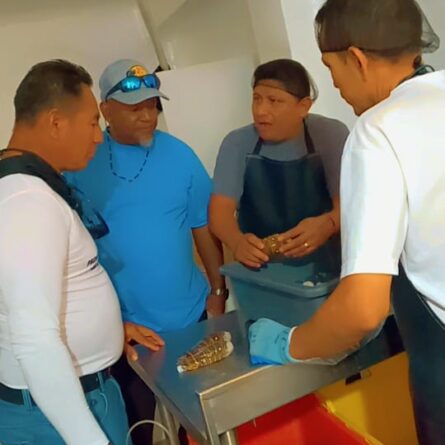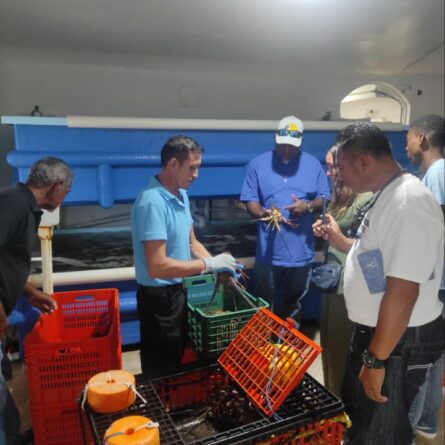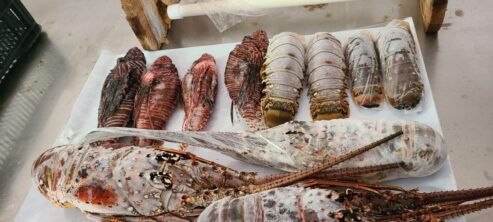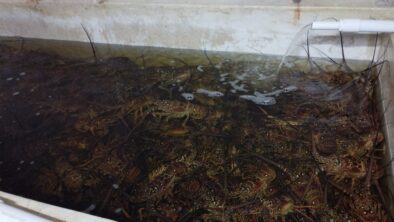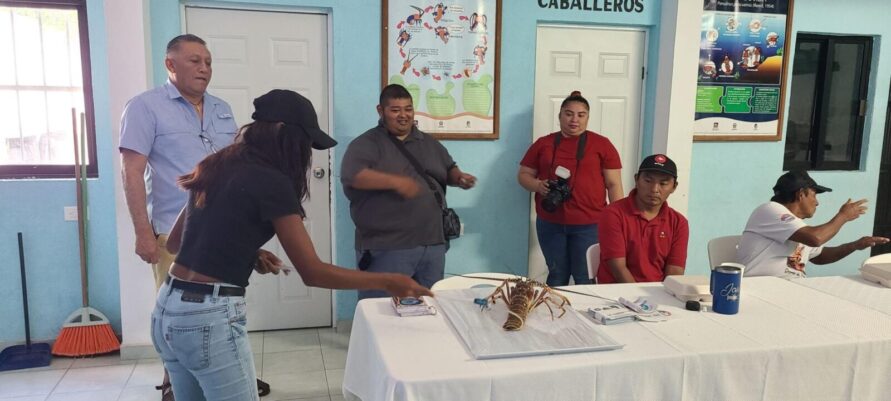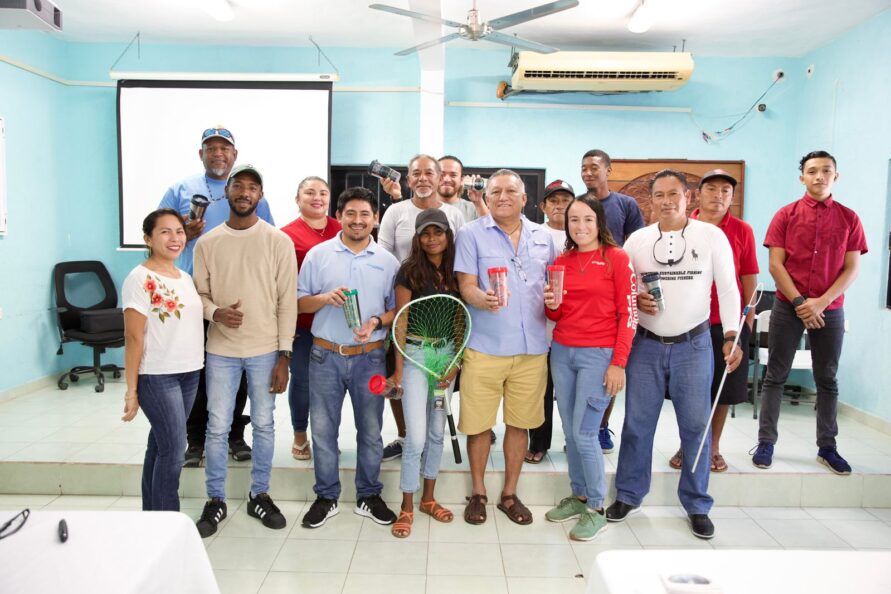Sustainable fisheries management is often dependent on localised knowledge. Local communities have been present for in situ observation of their resources for many years and possess insights that can be traced back generations. Though not usually formally recorded, this valuable knowledge has been passed through generations via oral storytelling from the older generations.
Regional and multi-country learning exchanges are powerful for uniting small-scale fishers to learn from each other. These interactions among the fishers have proven valuable for sharing experiences, learning techniques, and discussing their challenges. These knowledge-sharing forums are also key in unifying regional people to have greater inclusion in fisheries management by amplifying their voices for national and global fisheries issues.
The fisher learning exchange between Belize and Mexico included participants from the Wabafu Fishermen Association, Blue Water Fishermen’s Association, Chunox Fishermen Association, and the National Fishermen’s Producers Cooperative Society. Participants met in Belize City before commencing their two-hour ride to the northern border with Mexico, followed by a four-hour journey from Chetumal to Playa Del Carmen. They made the last leg of the trip via a 40-minute ferry to Cozumel, a large island renowned for being a tourism hotspot with a large population of international visitors.
The objectives of the fisher exchange between the Cozumel Cooperative and the Belizean counterparts were to build and strengthen relationships with regional seafood processors, learn through the exchange of experiences and promote the work of the respective fisher associations and cooperatives. The group toured a processing plant and learned about various fishing techniques, focusing on harvesting lionfish and Caribbean spiny lobster and linking fishermen to more robust markets.
The operations in Cozumel are small yet impressively productive in the artisanal processing of live lobster, lobster tail, and lionfish for the local and international markets. The Cooperative is involved in several lionfish initiatives through community tournaments to encourage engagement and various ‘value-add’ activities such as lionfish jewellery created by women.
The learning exchange provided a platform for the Cozumel Cooperative to share their knowledge and experience in diversifying catch and improving seafood processing techniques with the fisher associations and Blue Ventures staff.
The forum was a crucial step towards strengthening networking amongst fishers across Latin America and the Caribbean and garnered a lot of positive feedback from exchange participants. The secretary from BWFA shared, “I enjoyed the trip to Cozumel. Interacting with people and learning about different fishing methods was truly eye-opening.”
The trip overall was a great learning and travelling experience. It was especially interesting to observe how fishers from different places fish,” said Darnel Rodriguez, a fisherman who was thrilled by the experience.
The participants from Cozumel are looking forward to being invited by their Belizean counterparts to participate in a similar exchange in Belize. Although the four-day visit was short, the participants learnt a lot about regional fishing methods, built friendships among their peers, and are more open to participating in more exchanges like these in the future.
About the author: Celso Sho is a programme manager at Blue Ventures in Belize.


